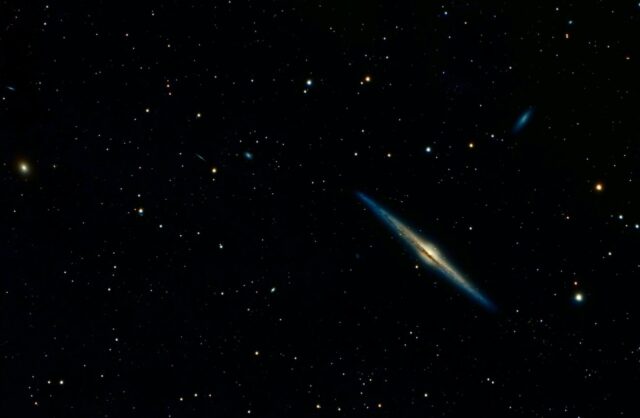The remains of a microscopic drop of ancient seawater has assisted in rewriting the history of Earth's evolution when it was used to re-establish the time that plate tectonics started on the planet.
Plate tectonics is Earth's vital—and unique—continuous recycling...
Earth's cataclysmic past is a fact. Welcome to the early solar system. Just after the planets formed more than 4.5 billion years ago, our cosmic neighborhood was a chaotic place. Waves of comets, asteroids and even proto-planets streamed toward...
The discovery of Tamu Massif, a gigantic volcano located about 1,000 miles east of Japan, made big news in 2013 when researchers reported it was the largest single volcano documented on earth, roughly the size of New Mexico.
New findings,...
A new radioactivity model of Earth's ancient rocks calls into question current models for the formation of Earth's continental crust, suggesting continents may have risen out of the sea much earlier than previously thought but were destroyed, leaving little...
For years, scientists have pointed to warming permafrost in the Arctic tundra as a source for increased carbon in the atmosphere; as this soil warms, it releases greenhouse gases that have long been trapped in frozen ground.
New research from...
Victor Camp has spent a lifetime studying volcanic eruptions all over the world, starting in Saudi Arabia, then Iran, and eventually the Pacific Northwest. The geology lecturer finds mantle plumes that feed the largest of these eruptions fascinating, because...
Climate change-induced heat stress will play a larger role than drought stress in reducing the yields of several major U.S. crops later this century, according to Cornell University researchers who weighed in on a high-stakes debate between crop experts...
Using rare oxygen molecules trapped in air bubbles in old ice and snow, U.S. and French scientists have answered a long-standing question: How much have "bad" ozone levels increased since the start of the Industrial Revolution?
"We've been able to...
Plato, the Greek philosopher who lived in the 5th century B.C.E., believed that the universe was made of five types of matter: earth, air, fire, water, and cosmos. Each was described with a particular geometry, a platonic shape. For...
Volatile elements in magma, primarily water, drive explosive volcanic eruptions. The tricky part is determining just how much volatile content was present before the eruption took place. This is especially difficult when the only evidence scientists have to go...
Clues from Canadian rocks formed billions of year ago reveal a previously unknown loss of life even greater than that of the mass extinction of the dinosaurs 65 million years ago, when Earth lost nearly three-quarters of its plant...


















